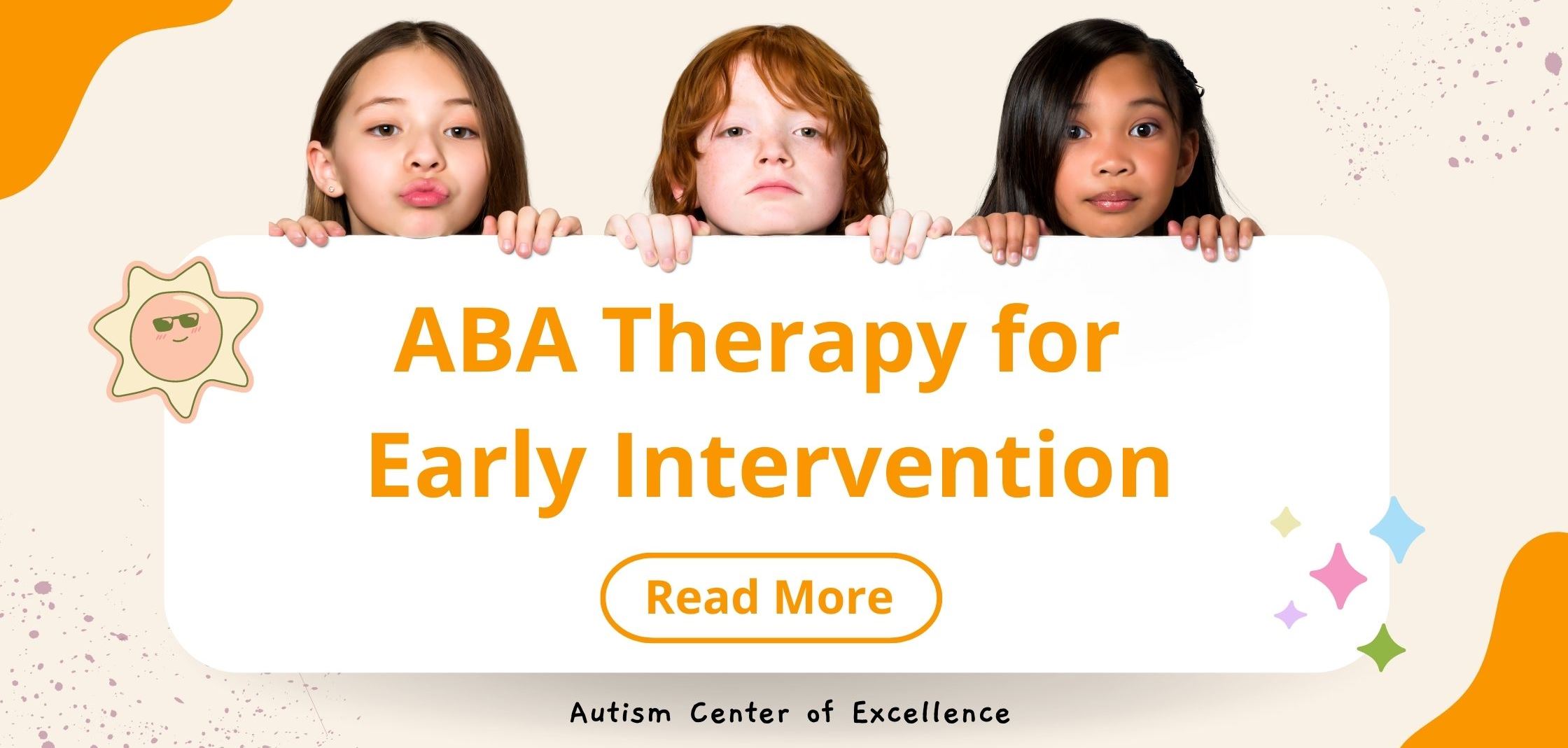When it comes to the field of Applied Behavior Analysis (ABA) Therapy, Early Intervention holds paramount importance. Following an autism diagnosis, it is crucial to start ABA therapy as soon as possible to maximize its effectiveness. ABA Therapy is a structured and evidence-based approach to helping individuals, particularly children, develop essential life skills and manage challenging behaviors. This article delves into the significance of early intervention in ABA Therapy, shedding light on how it can positively impact the lives of individuals and their families.
About ABA Therapy
Applied Behavior Analysis (ABA) therapy is a scientifically-validated approach to understanding and changing behavior. It focuses on improving social, communication, and behavioral skills in individuals with Autism Spectrum Disorder (ASD). ABA therapy operates on the principle that behavior is learned and can be modified through reinforcement, prompting, and other techniques. By breaking down complex behaviors into smaller, more manageable parts, ABA therapists can effectively teach new skills and reduce challenging behaviors. This structured approach helps individuals with ASD make meaningful progress in their daily lives.
Why is Autism Early Intervention so Important in ABA Therapy?
Early intervention in ABA Therapy for Autism is crucial due to its lasting impact on a child’s development. During the formative years, the brain is highly adaptable, making it more receptive to learning and behavior modification. Intervening early allows therapists to address core challenges like communication and social skills when they are most malleable, positively impacting a child’s brain development. Positive changes established through early intervention are more likely to become ingrained, promoting better long-term outcomes. Early ABA intervention not only empowers children with essential skills but also reduces the need for intensive support later in life. Timely intervention sets a foundation for improved social integration and overall quality of life.
The Critical Period of Development
The early years of a child’s life are often referred to as the critical period of development. During this time, the brain exhibits high plasticity, which means it is highly adaptable and open to learning. ABA early intervention creates the path to neuroplasticity to teach and reinforce crucial skills that are essential for a child’s life and future development.

Advantages of Early Intervention in ABA Therapy for Challenging Behaviors
✅ Maximized Learning Potential: Early ABA therapy allows therapists to work with children during their formative years, when they are most receptive to learning. This maximizes the potential for acquiring new skills and behaviors.
✅ Targeted Behavior Modification: Early intervention ABA therapy addresses behavioral challenges early on, preventing these issues from becoming ingrained patterns. ABA therapists can focus on teaching alternative behaviors and reducing challenging behaviors through systematic interventions.
✅ Development of Fine Motor Skills: ABA therapy supports the development of fine motor skills, which are crucial for daily activities and social interactions. Early intervention can significantly enhance these skills, aiding in the child’s overall development.
✅ Improved Social Interaction: Children with developmental delays often struggle with social interactions. Early ABA intervention can help teach foundational play skills, enhancing their ability to connect with peers and family members.
✅ Enhanced Communication Skills: ABA therapy places a strong emphasis on communication training. Early intervention can facilitate the development of social and communication skills, potentially reducing frustration and improving overall quality of life.
✅ Family Involvement and Support: Early intervention in ABA therapy involves not just the child, but also their family. Parents and caregivers learn strategies to support their child’s progress, creating a more holistic and supportive environment.
Pretend Play and Social Skills Development
Pretend play is an essential part of childhood development, and it plays a critical role in the development of social skills in children with Autism Spectrum Disorder (ASD). Through pretend play, children can practice social skills such as sharing, taking turns, and cooperating with others. ABA therapists can use pretend play to teach children with ASD how to engage in social interactions, develop empathy, and understand the perspectives of others. By incorporating pretend play into ABA therapy sessions, therapists can help children with ASD develop the social skills they need to succeed in school and in life.
Intensive Therapy Approach
Intensive therapy is a type of ABA therapy that involves providing a high number of therapy sessions per week. This approach is often used with very young children who have been diagnosed with Autism Spectrum Disorder (ASD). The goal of intensive therapy is to provide children with the support and structure they need to learn new skills and reduce challenging behaviors. Intensive therapy can involve a combination of ABA therapy, occupational therapy, and speech therapy, and it is often provided in a clinic or home-based setting. By providing intensive therapy, ABA therapists can help children with ASD make significant gains in their social, communication, and behavioral skills.
The Impact of Early Intervention
Early intervention is the cornerstone of successful ABA Therapy. Early ABA therapy refers to starting therapy as soon as a child shows signs of developmental delay or autism symptoms. Research consistently shows that intervening early in a child’s life, ideally before the age of three, leads to significantly improved outcomes. Early intervention capitalizes on the brain’s remarkable plasticity during the formative years, making it easier to acquire new skills and behaviors.

Conclusion
In the realm of Autism Therapy, Early Intervention in ABA Therapy stands as a pivotal factor in achieving optimal outcomes. The combination of the highly adaptable ABA approach with the brain’s remarkable plasticity during the critical period creates a potent synergy. By addressing core deficits, building functional skills, involving families, and starting early, we pave the way for children with autism to reach their full potential and lead fulfilling lives. As we move forward, embracing the importance of early intervention is not only an skill development in your child (as early as 1.5 year of age), but a stride toward a more compassionate and understanding society..
Please Note: The content of this blog is for informational purposes only and should not be considered a substitute for professional medical advice, diagnosis, or treatment. Consult a qualified healthcare professional for personalized guidance tailored to your specific situation.
Join Our Weekly Newsletters!
Subscribe now to stay updated with our latest email updates.

A Belief In Every Child’s Potential
Start your child’s individualized program for Autism Spectrum Disorder (ASD) to increase communication, social interaction, safety awareness, and independent living skills while reducing challenging behaviors.

